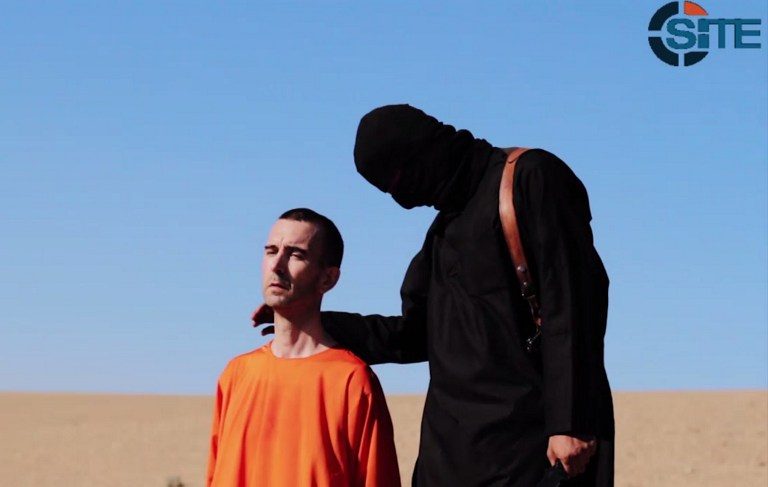SUMMARY
This is AI generated summarization, which may have errors. For context, always refer to the full article.

LONDON, United Kingdom – Britain on Wednesday, November 26, unveiled draft legislation to ban extremist preachers from universities, increase surveillance on suspected radicals and stem the flow of jihadists joining the Islamic State group.
The Counter-Terrorism and Security Bill has already come under criticism from Muslim rights campaigners and civil liberties groups who have raised concern about measures not subject to review by the courts.
“We are in the middle of a generational struggle against a deadly terrorist ideology,” Britain’s interior minister, Theresa May, said.
“In an open and free society, we can never entirely eliminate the threat from terrorism.
“But we must do everything possible in line with our shared values to reduce the risks,” she said.
One of the most contested proposals is a ban for Britons suspected of fighting in Iraq and Syria from re-entering the country for up to two years unless they agree to be subjected to strict monitoring.
Critics have said these “temporary exclusion orders” come close to making British citizens “stateless”, a breach of international law that could also create a headache for transit states like Turkey.
The laws would give Britain’s interior minister sweeping powers, including on deciding the definition of extremist speech – a landmark step in a country that has long prided itself on free speech.
Police will also have the power to seize passports and travel documents of people thought to be going abroad to engage in terrorism and relocate terror suspects to different parts of the country.
David Anderson, the independent reviewer of anti-terror legislation, criticised the plans.
“Where are the courts?” he asked at a parliamentary committee on human rights, adding that there may be a “more sensible” way of dealing with those suspected of terrorist activity.
“The role of the courts… is important if you don’t want these laws being abused,” said Simon Palombi, a consultant for the international security department at the Chatham House think tank.
Palombi said the “most controversial” measure was obliging Internet service providers to hand over data on Internet Protocol (IP) addresses to trace individual smartphone and computer users.
Making schools and universities legally liable for helping to deter radicalisation was also “a very slippery slope”, he warned.
“I think you are going to find a lot of opposition there,” he said. – Rappler.com
Add a comment
How does this make you feel?
There are no comments yet. Add your comment to start the conversation.